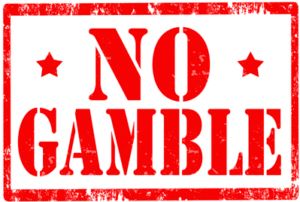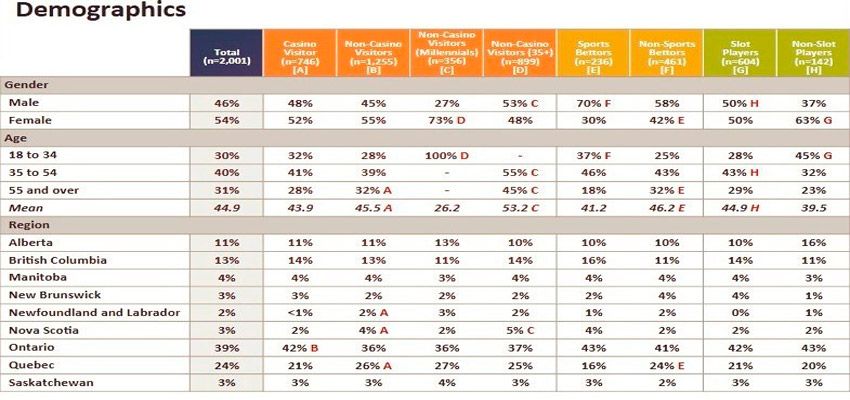
- ● Over 4,800 slots and 400+ Live games
- ● Fast Withdrawals
- ● Lemon Lotto Wheel - Daily No Deposit Free Spins
- ● Treasure Boxes - Loyalty Program
- ● Non-Sticky Welcome Bonuses
- ● No wager 7% Weekly Cashback
If you’re passionate about gambling, then you must be on the lookout for interesting facts on the subject. No matter how much we know about the things we enjoy, there’s always more to find out. Our focus this time will be on land-based casinos and gambling facts Canada-style. We’ll dive into topics such as taxes on gambling winnings in Canada, legal frameworks, tendencies, history and a bit of superstition. Stick around for an intriguing read!
Living in one of the industry-leading countries in terms comes of gambling, Canadians immerse themselves in sports betting, slots, table games and poker. Across the country, gambling is seen as a form of having fun. Canadian citizens are expected to be responsible about betting and use their privileges for entertainment purposes. As the nation evolved, along with its provinces, the government was clever enough to make the decision to leave the freedom to gamble to the people. This contributed to the growth of land-based casinos, and later to the expanse of the online gaming sector.
 As an independent country, Canada was established in 1867. The Canadian Criminal Code came into effect in 1892, banning every form of gambling known to the average citizen. Fortunately for everyone involved in gambling activities at the time, the perception on making bets changed fairly quickly. Bingo and raffles were the first to reappear. These forms of betting were permitted for charitable purposes. A decade later, horse racing was added to the list.
As an independent country, Canada was established in 1867. The Canadian Criminal Code came into effect in 1892, banning every form of gambling known to the average citizen. Fortunately for everyone involved in gambling activities at the time, the perception on making bets changed fairly quickly. Bingo and raffles were the first to reappear. These forms of betting were permitted for charitable purposes. A decade later, horse racing was added to the list.
In 1970, gambling laws in Canada suffered changes that approved provinces to oversee gambling within their respective borders. The first Canadian commercial land-based casino opened its doors in Winnipeg in 1989. In the years to come, more venues were built in Manitoba, Quebec, Ontario, Saskatchewan and Nova Scotia.
By the early 2000s, Canada's gambling industry would feature:
Believe it or not, gaming is the largest entertainment industry in Canada. If you combine movies, television, music production and professional sports, they together come close to how big the gaming sector is in the Great White North. Provincial and territorial governments control all gambling activities. The gambling business is the source of more than 267,000 jobs, out of which more than 135,000 are full-time jobs.
The talk about demographics is often geared towards problem gamblers. We choose to shed some positivity over what is one of the primary funding sources for many Canadian government programs. Obviously, we’re referring to responsible, adult gambling. Statistics reveal that the majority of the gamblers in the country are male, constituting 80% of all gamblers in Canada. They are mostly fond of sports betting. Females also gamble a lot, favouring lottery and bingo.

Most of the gamblers are young adults who are either in college or at the beginning of their careers. The gambling population ranges between the ages of 35 and 50 in the broadest of angles. Slot machines seem to be the games of choice for many punters between the ages of 55 and 64.
The greatest number of gamblers comes from British Columbia, Québec and Alberta. Looking at the popularity of casino venues, Québec and Ontario easily have the most visited casinos in Lumberjack Country.
Being a casino dealer has many appealing aspects. It certainly sounds like a glamorous occupation, one that’s performed at luxurious casino resorts. Nevertheless, a dealer’s life is not all fun and games and generous tips. One needs to boast relevant skills and attributes to be able to operate the tables.
In Canadian casinos, according to statistics, the average base pay for a casino dealer is approximately C$14,700 a year. A large part of their compensation is generated through tips. Canadian casino patrons are encouraged to tip the dealer. This is a token of their appreciation for the professional and courteous service they’ve received. Now, if a dealer is exceptional at his/her job, the salary can be tripled or even quadrupled.

Before they are seated at the table, most dealers need to go through extensive training in-house. If you’re pursuing a career in this noble profession, you need to be able to add, subtract, and multiply quickly in your head. In other words, basic high school math shouldn’t be a problem. A dealer must have a license from the state gaming board, good communication skills, a clean record and perfect colour vision.
One of the most sought-after facts about gambling in Canada deals with taxation laws on winnings from gambling. If you are wondering whether you should pay any taxes on what you’ve won at a casino, the answer is most likely no. In the majority of cases, gambling winnings are exempt from taxes in Canada. The Canada Revenue Agency (CRA) doesn’t require paying taxes on lottery winnings and casino winnings (as long as you are not a pro gambler and make a living this way). Winnings from bookmakers are treated as income, and therefore taxed.
 Even today, many casino players are subject to certain superstitions. They want to have luck on their side and will do everything to secure that. It is arguable whether superstition can benefit gamblers or not. Some believe it can, but not because any superstitious ritual will actually influence the outcome of a casino game. It’s because it will give the player extra confidence and a sense of control of the situation. Think about it – without control, we may get anxious. In skill-driven games, our ability to think may be compromised. So, from that angle, an innocent superstitious act may increase our performance.
Even today, many casino players are subject to certain superstitions. They want to have luck on their side and will do everything to secure that. It is arguable whether superstition can benefit gamblers or not. Some believe it can, but not because any superstitious ritual will actually influence the outcome of a casino game. It’s because it will give the player extra confidence and a sense of control of the situation. Think about it – without control, we may get anxious. In skill-driven games, our ability to think may be compromised. So, from that angle, an innocent superstitious act may increase our performance.
Some of the most common superstitions include believing in lucky and unlucky numbers, lucky and unlucky colours, wearing the same clothes and carrying lucky charms. There are some quirky examples too, like “don’t wash your hands before you play”, “don’t touch another gambler’s shoulder” or “don’t enter a gambling establishment through the back door”.



The scope of gambling activity in the Great White North is indeed remarkable. Players have a plethora of options to choose from, especially those residing in provinces such as Ontario (25 casinos), Alberta (25 casinos), British Colombia (15 casinos) and Quebec (9 casinos). Multiple charity initiatives and government functions are powered by gambling revenues. The nation also nurtures the culture of resort casinos and preserves its traditional gambling establishments while experiencing an online gambling boom. Knowing your gambling facts Canada-wise should make you more understanding of the nation’s love for gambling and the most current gambling trends among Canadians.
Currently, there are more than 200 gambling facilities across Canada. Nearly every province has a casino, and they vary in size and content.
The Montreal Casino in Montreal, Quebec is the biggest casino in the Land of Maple Syrup. The facility is located on Ile Notre-Dame and opened in 1993. It has around 3,000 slot machines and more than 100 tables, serving 18,000 visitors per day. Casino de Montréal is one of the biggest casinos on the planet.
Gambling age in Canada is a limitation dependent on the province you are located in. One needs to be over 18 years old to gamble in Alberta, Manitoba and Quebec. However, casinos in British Columbia, New Brunswick, Newfoundland and Labrador, Nova Scotia, Ontario, Prince Edward Island and Saskatchewan accept only patrons over 19.